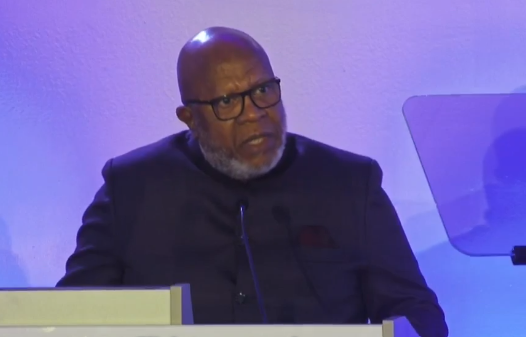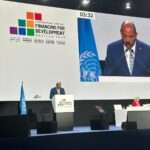
President of the General Assembly Dennis Francis told the opening of the Fourth International Conference on SIDS, which is being held in Antigua, that the international community’s focus on financial inclusion for small and vulnerable developing countries, including SIDS, forms an integral aspect of a broader strategy for economic development and addressing poverty.
“But there are enormous risks and socio-economic consequences inherent in the global financial architecture and banking systems which frustrate developmental aspirations of small states,” he said
Francis said if leaders fail to undertake substantive reform of the international financial framework and multilateral architecture and their governance, developing countries – including the SIDS – cannot unleash their full potential to mobilize much-needed resources to achieve the 2030 Agenda and its SDGs.
He said the long-awaited Conference offers a powerful, once-in-a-decade platform to assess the collective progress of Small Island Developing States (SIDS) – an endeavor that resonates with me at a personal level, hailing as I do from the neighbouring island nation of Trinidad and Tobago.
“I welcome the new 10-year program of action; the Antigua and Barbuda Agenda for SIDS (ABAS) – which will guide SIDS on the path to resilient and prosperous societies through the next decade,” he said
Francis said indeed, SIDS have been in the vanguard in advancing these conversations on the world stage – remaining highly active within the UN system and multilateral fora and demonstrating laudable global leadership.
“This was exemplified recently when nine small island states – led by Vanuatu and including Antigua and Barbuda – successfully brought a case to the International Tribunal on the Law of the Sea, which ruled that carbon emissions can be considered a sea pollutant,” he said
Francis also spoke about the recent historic ruling on climate change funding, saying that it obliges countries to mitigate their effects on oceans – potentially creating an important basis for future climate jurisprudence.
“It is a sad fact that the precious beauty of SIDS is matched by their exceptional vulnerability.
The challenges they face are well-known – stemming from their small size, remoteness, geographic dispersion, and scattered populations. It is therefore critical that SIDS are better supported to enhance their resilience to exogenous shocks such as market fluctuations, climatic extremes, and rampant disasters – often the root cause of their high indebtedness and other economic challenges.
Consider that more than 40 percent of SIDS have a debt-to-GDP ratio above 40 percent – with some exceeding 100 percent,” he said
He said a situation where a SIDS borrows from global financial institutions – often at non-concessional rates – is clearly unfair and unacceptable.
“Abandoning the outdated economic paradigm of GDP per capita as an indicator of economic well-being – and incorporating a Multidimensional Vulnerability Index (MVI) into the practices and policies for debt sustainability and development assistance – could break this cycle by making vulnerability a core component in determining access to concessional financing,” he added
He also commended Prime Minister Browne and Ema Solberg, former Prime Minister of Norway for what he said was their ground-breaking work as Co-Chairs on the MVI High-Level Panel
“I believe this is necessary and urgent – noting that between 2017 and 2021, no more than 1.55 percent of total global ODA was allocated to SIDS. I repeat, no more than 1.55 percent of total global ODA was allocated to SIDS.






0 Comments